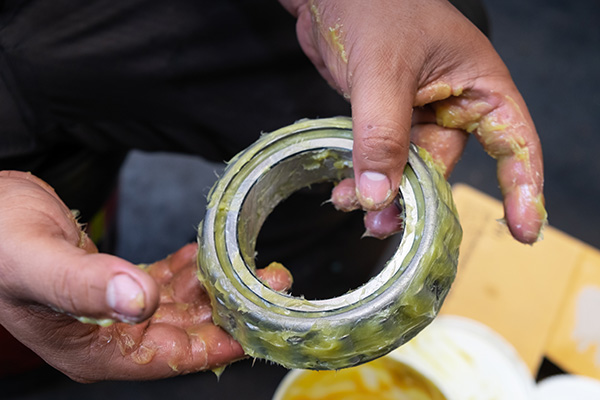
Wheel bearings are small, tough components that sit inside your vehicle’s wheel hub assembly. Their main job is to allow the wheels to rotate smoothly while supporting the weight of the vehicle. Each wheel has its own bearing, and it plays a key role in steering, stability, and even braking. When a wheel bearing starts to fail, it doesn’t usually break all at once. Instead, it sends out subtle warning signs. Catching those signs on time will help you avoid breakdowns and save on repairs.
Early Warning Signs of a Bad Wheel Bearing
Most wheel bearing problems start with noise. You may hear a low growl or hum that changes with speed. It might sound like tire noise at first, but it gets louder the faster you go. If the sound gets worse when turning or leaning toward one side, that’s another strong clue. The noise usually comes from the side of the vehicle with the failing bearing.
You might also feel:
- Uneven tire wear: When a bearing is loose, it can affect alignment slightly, leading to irregular tread patterns.
- Steering looseness or vibration: A worn bearing can cause slight play in the wheel, which may be felt in the steering wheel.
- Pulling to one side when braking: A very loose bearing can affect how evenly the brakes apply pressure.
- ABS light: On some vehicles, a failing wheel bearing may interfere with the ABS sensor and trigger a warning light.
Why Wheel Bearings Go Bad
Like most parts of your vehicle, wheel bearings wear out over time. They operate under constant load and high pressure, especially at highway speeds. Potholes, curb impacts, water intrusion, and poor road conditions can all accelerate wear. In some cases, wheel bearings fail prematurely due to poor installation or low-quality parts.
Bearings are sealed units in most modern vehicles, which means they’re not serviceable. Once they go bad, the entire hub assembly or bearing needs to be replaced.
Why You Shouldn’t Wait
Driving with a bad wheel bearing is risky. As the bearing wears out, the wheel may begin to wobble slightly. If ignored long enough, this can lead to loss of control or even the wheel separating from the vehicle. While those situations are rare, they do happen when drivers delay needed repairs.
A failing bearing can also damage related parts. If the bearing loosens or fails completely, it may ruin the hub, spindle, or other suspension components. Waiting too long turns a relatively affordable repair into a much larger and more expensive one.
How Technicians Diagnose the Problem
When you bring your car in for a strange noise or vibration, your technician will inspect the wheel bearings by lifting the vehicle and checking each wheel for looseness or roughness when spun by hand. They’ll also listen for grinding or humming sounds during a road test. In some cases, specialized tools are used to detect early-stage bearing noise before it becomes loud.
If one bearing has failed, your technician may check the opposite side for wear. Some drivers choose to replace both sides at once if the mileage is high or if the bearings are original.
Can You Prevent Wheel Bearing Failure
You can’t completely prevent wheel bearing wear, but you can reduce the risk by driving carefully and maintaining your suspension and alignment. Avoid hitting potholes and curbs when possible. Also, make sure your tires are balanced and inflated properly, as vibrations and uneven load can increase bearing stress.
Having your wheels aligned and suspension inspected regularly helps spot issues that could lead to bearing wear. If your vehicle has over 100,000 kilometers and you’ve never had the bearings checked, it’s worth having them inspected during your next service.
Have Your Wheel Bearings Checked at A Plus Automotive in Kelowna, BC
If you’ve been hearing odd noises or feeling vibrations while driving, don’t wait for the problem to get worse. At A Plus Automotive in Kelowna, BC, we offer accurate diagnostics and expert repairs to keep your vehicle running safely. Whether you need a simple checkup or a full hub replacement, our team is here to help.
Schedule a visit today and stay ahead of serious wheel bearing problems.